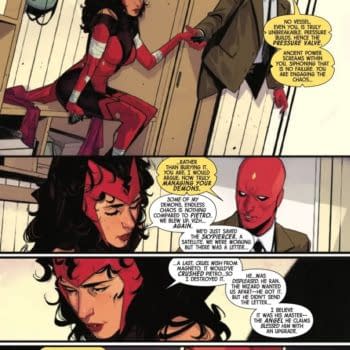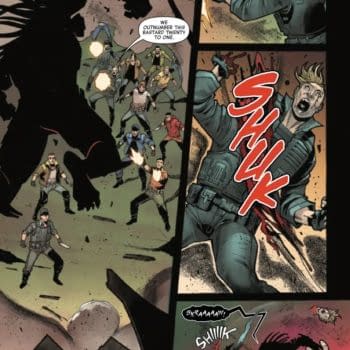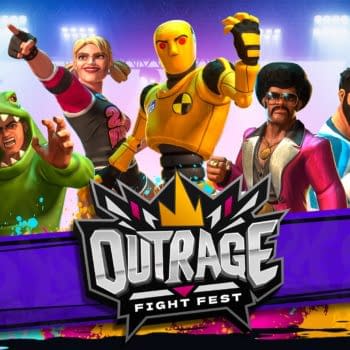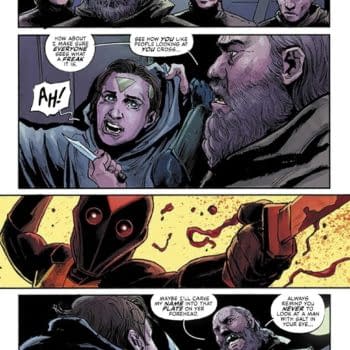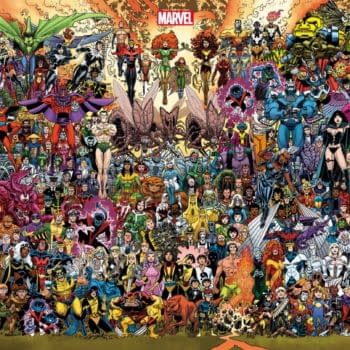Posted in: Comics, san diego comic con | Tagged: Comics, entertainment, san diego comic con
SDCC '15: Boom! Studios' Push Fun Forward Panel With Mairghread Scott, Dave Roman, Cecil Castellucci, Ian McGinty, And Thom Zahler
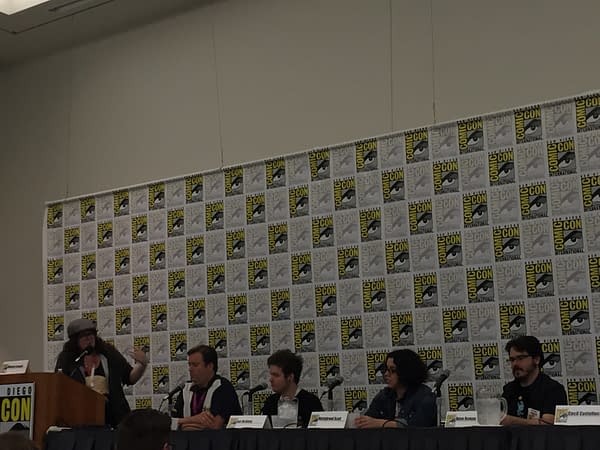
When asked about how they choose age group or direct their stories to all-ages, Castellucci said for her it's all about "voice" and how the story wants to be told.
Dave Roman found families coming up to his table at shows and asking if his books were appropriate for their children, which made him more conscious of it. He thinks still he's aiming at one group in mind, but others often give him feedback that he's too edgy or too "adorable" and he has to tweak that.
Zahler said that people often think that a "cartoony style" means it's a kids book, and that style has directed him more toward a younger age group now.
McGinty tries to make things that are "acceptable to everybody", and though he never saw many violent comics as a kid, though he read them later, but still gravitates toward humor and "cute rabbits" in his work.
Scott said she kind of hates writing humans, and does like violence in her comics, though she doesn't like blood. She grew up with Batman: The Animated Series and felt like that was a "real shift" in all-ages stories.
Leopard pointed out that "all-ages" incorporates so many areas, and asked if the panelists could share their own definitions.
McGinty said it's about demographics for him, and all-ages is broad which is good, rather than having to try to fit a particular group. He feels it's a mistake to "pander to children" or "underestimate them", and he doesn't see as much enjoyment and enthusiasm with a limited demographic aim.
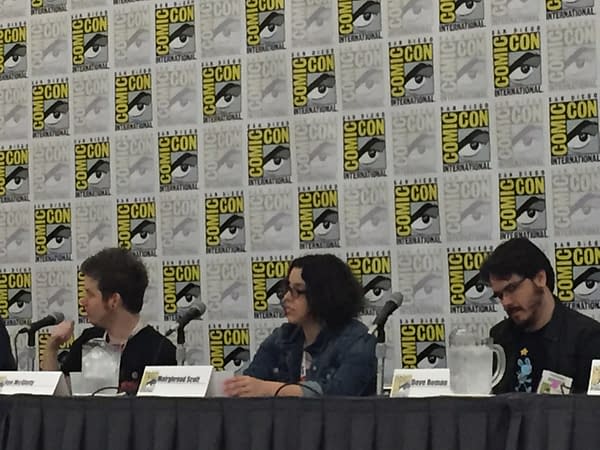
Roman explained that he doesn't make much money in comics, and makes more of his money as an illustrator. But comics are his "voice", and though his books still tend to sell well in bookstores, very little of his sales come from comic shops. He's had to figure out "who is the demographic".
Scott said it's a big thing in thinking about adult comics is that when writes Transformers, she knows adults are automatically going to put them in the hands of children, so she has to moderate gore and things in response. She said that reading books for different age groups will help comic writers and artists learn to be better at what they do, for instance the series OWLY will teach you how to create non-verbal stories.
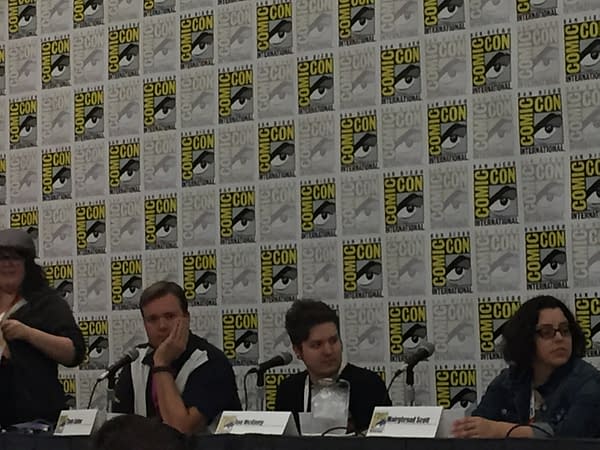
Castellucci added that it's also about "growing with " a story. That's the appeal of all-ages stories for her, where you "mature and season" and the story does too.
Roman brought up Pixar movies as the template for what is all-ages. He countered that though with the fact that Pixar movies are marketed as kids movies, not adult movies but we are just "cool enough" to go as adults too. Comics have a bigger problem with categorization. The phrase "all-ages" works well in the comic book industry to address children, but it doesn't work well for librarians which need more gradation. Developmental stages are important to keep in mind.
Castellucci added that book stores have the same problem as libraries, and as Roman said, they place OWLY next to WATCHMEN. The solution, where kids comics are often simply put in children's literature, has actually produced an interesting result with kids growing up reading comics without differentiating between comics and other types of books or being directed away from them.

Scott also said she thinks we're starting to "evolve" past labeling all-ages as too children-oriented for older pre-teen readers or adults.
Castellucci said that as we move forward, the blend between comic book stores and book stores will start to make things easier.
Roman discussed the rise of geek parents as geeks start to raise kids. There's a point where one used to "grow out of cartoons" unless you were a "nerd" but now there are lots of animated shows and "everyone is a nerd", which has expanded the audience for comics as well.
Zahler said we need to keep in mind that parents buy things for the kids, and they tend to follow branding rather than trying to introduce children to new things, which can be a challenge.
Scott commented that criticizing the "kidifying" of characters like Batman is ridiculous because Batman started off as an all-ages comic. Zahler said that we often over-protect kids from bad guys getting killed, when that is exactly what early folk tales and fairy tales include. Little kids' minds "go to weird places" said Scott, and she loves moving back toward that.
Castellucci said that kids tend to "gloss over" the parts that they don't understand anyway. Zahler agreed that kids "self-select" and interpret what they can.
Introducing kids to new ideas is important, Castellucci added, until they get to the point where they are brave enough to try new things on their own.
McGinty said it can be "extremely intimidating" to meet a "tiny person" who has an encyclopedic knowledge of a series you're working on and kids telling him what they would do in their versions. Scott agreed that it's a little known thing that "kids are brutal" to comics creators. They are so honest about what they like, and often don't want their comics signed at shows, just walking away.
When a kid is "legitimately excited" you know there's not "etiquette in that", and that's really powerful, Scott said.
During the Q&A, the panelists talked about the value and benefit of digital versus the "tactile experience" of beautifully printed books for kids. Both had their qualities and different possibilities and the panelists seemed to agree that both should be available to parents and kids.
On the subject of diverse books, Castellucci's final word was "If you want diverse books, buy them to send a message to the publishers", otherwise it's throwing the opportunity for change away, agreed the other panelists.










